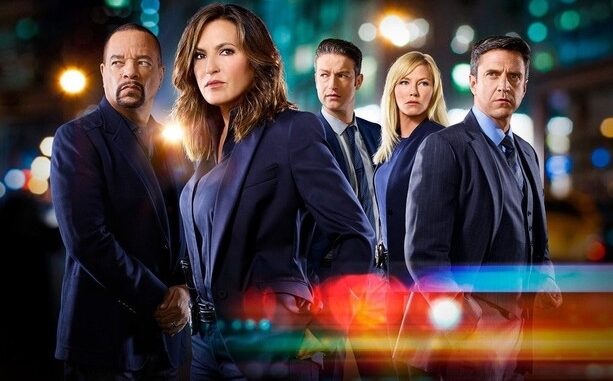
The Shifting Sands of Command: Benson's Leadership Under Fazekas
For over two decades, Lieutenant (now Captain, then Chief of SVU, and now Commander of the Special Victims Unit) Olivia Benson has been the enduring, empathetic heart of Law & Order: Special Victims Unit. Her journey from a rookie detective, learning the ropes under the gruff wisdom of Captain Cragen, to a seasoned leader grappling with the complexities of trauma and justice, has mirrored the show's own evolution. Yet, in recent seasons, particularly since the helm passed to new female showrunner Michele Fazekas, the very nature of Benson’s command style has become a fervent battleground in the digital amphitheaters of fandom. The debate isn't merely about plot points; it’s a microcosm of broader societal conversations about strength, empathy, and what effective leadership truly looks like in a modern, often messy, world.
Before Fazekas’s arrival, Benson’s leadership, while always tinged with her deep empathy, had a distinct, almost traditional, procedural strength. She was decisive, fiercely protective of her squad, and unwavering in her pursuit of justice for victims. We saw her grow into the role, internalizing the weight of command but rarely allowing it to cripple her ability to act. Her strength was often presented as a quiet, steely resolve – a woman who had seen the worst of humanity and yet refused to break, channeling her own pain into a relentless drive to protect others. She might occasionally bend the rules for the greater good, but her moral compass was unshakeable, guiding her squad through the darkest alleys of human depravity.
With Michele Fazekas stepping into the showrunner role, a palpable shift began to ripple through the squad room, most noticeably in Benson’s character. Fazekas, known for her nuanced character development in previous works, seemed intent on delving deeper into the psychological toll of such a demanding job. The stone facade that Olivia had built over years began to show cracks, revealing a leader more prone to internal conflict, self-doubt, and an overt struggle with the systemic limitations of her position. Her empathy, always a hallmark, now manifested less as a quiet understanding and more as an active, sometimes agonizing, wrestling with the "how" and "why" of injustice, rather than just the "who." She became, for many, a leader seeking not just convictions, but deeper societal change, pushing boundaries of victim advocacy and restorative justice even within the rigid framework of the NYPD.
This new iteration of Benson’s leadership has ignited a passionate, bifurcated debate among the SVU faithful. On one side, a vocal segment of fans applauds Fazekas’s vision, seeing it as a necessary and realistic evolution for a character who has endured so much. They argue that this Benson is more human, more relatable. Her moments of vulnerability, her therapy sessions, her visible frustration with a system designed to crush the vulnerable, are seen not as weaknesses but as authentic portrayals of a leader under immense pressure. “This is what real leadership looks like,” a common refrain echoes across social media. “It’s not always about barking orders; it’s about listening, learning, and acknowledging when the system itself is flawed.” These fans see her as representing a new paradigm of strength – one that prioritizes emotional intelligence, collaboration, and a willingness to question the status quo, rather than simply enforcing it. For them, Fazekas has allowed Benson to shed the traditional, often male-coded, tropes of command, forging a path that embraces a more holistic, compassionate understanding of justice.
Conversely, a significant contingent of the fanbase expresses frustration, sometimes bordering on anger, at what they perceive as a “softening” or even a “preachiness” in Benson’s leadership. These fans lament the loss of the decisive, take-charge captain they once admired. For them, the internal struggles and emotional overtures have diminished her authority, making her appear indecisive or ineffective. “She used to be a force,” one commenter on Reddit might write, “now she just looks perpetually stressed and talks about feelings. Where’s the captain who got things done?” They crave the clear-cut resolutions and the confident command of earlier seasons, viewing the focus on systemic issues and Benson’s emotional journey as detracting from the core procedural drama. Some even suggest that Fazekas has sacrificed strong, assertive female leadership on the altar of modern sensibilities, inadvertently stripping Benson of the very qualities that made her an icon of strength. The show, they argue, has become less about cracking cases and more about unpacking trauma, with Benson often appearing more like a therapist than a commanding officer.
The debate, ultimately, is about more than just a fictional character; it’s about our collective anxieties and aspirations for leadership itself. Is strength found in unwavering resolve, or in the courage to be vulnerable? Does empathy enhance command, or dilute it? And how much emotional baggage can a leader realistically carry before it compromises their effectiveness? Fazekas’s tenure has, perhaps inadvertently, created a mirror reflecting these societal tensions. By choosing to delve into the intricate, often messy, inner life of a female leader operating in a male-dominated institution, she has pushed Benson into uncomfortable, yet compelling, territory.
Whether one cheers for this evolved Benson or yearns for the resolute captain of old, the intensity of the fan debate underscores Olivia Benson’s enduring cultural significance. Her leadership, now refracted through the lens of a new showrunner, remains a powerful narrative touchstone, forcing us to consider not just what a hero looks like, but what it means to lead with both heart and steel in an ever-changing world. The sands of command have indeed shifted, and the conversation about where they will settle is far from over.
